Many people have more or less lost identity card experience, after all, who is alive, who can not have an accident?
But for overseas Chinese and international students who still have Chinese nationality, the loss of their identity cards is a big deal:
In recent years, overseas Chinese and international students are often "recruited", the lost identity card was taken to the bank to open an account, and even used for some illegal activities!
It was not until those who were abroad returned to their country that they found that they suddenly had a bank account in their name and even "opened a company" at home, with the possibility of facing millions of yuan in loans and fines. What should I do when it comes to these things?
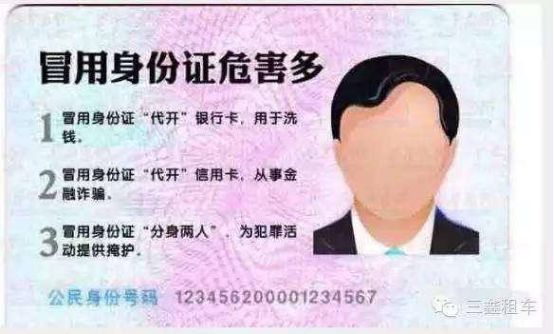
Don`t be afraid, 2018 Chinese identity card new regulation is coming!
1. The central bank sets up a pilot project for information verification
The people`s Bank of China announced on March 21 that from April 9, the industrial and commercial banks in Tianjin, Shanxi Province, Fujian Province, the Bank of China and the Construction Bank will carry out the pilot work of invalid resident identity card information verification; In Shanghai, Fujian, Shenzhen, Zhuhai Industrial and Commercial Bank, Bank of China, China Merchants Bank to carry out non-resident identification information verification pilot work.

(photo source: people`s Bank of China website)
The people`s Bank said that the next step will be to sum up the pilot experience, continue to expand the scope of online verification business, improve the operational capacity of the system, and gradually extend the pilot to the whole country.
2. What is invalid identity card information and non-resident identity document information verification?
The verification of invalid resident identity card information refers to the bank`s behavior of verifying the validity of resident identity card by means of network verification system in the process of handling business for customers to verify whether the resident identity card is reported missing or not.
If the bank is checking that the individual has declared the lost identity card to the public security organ, the online verification system will feedback "the certificate has been reported missing";
If an individual has changed his name, damaged his or her certificate, made a mistake in the registration item, or has completed the expiration of the period of validity, and the public security organ has renewed a new certificate, while the certificate checked by the bank is still an old certificate, the online verification system will feedback that "the certificate has become invalid."
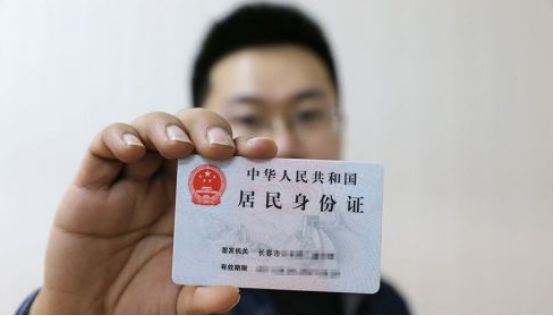
Information verification of non-resident identity documents refers to the verification by banks of Hong Kong and Macao residents` passes to and from the mainland through an online verification system in the course of conducting business for customers. Information such as Taiwan residents` passes to and from the mainland and the names of foreigners` permanent residence cards are used to verify the authenticity of non-resident identity document information.
If the information recorded in the non-resident identification documents checked by the bank is inconsistent with the relevant database information of the Ministry of Public Security, the online verification system will be inconsistent with the feedback information.
To put it simply, public security organs should link up with bank information, set up an online verification system, and crack down on identity card theft for related business.
Of course, if you do not do fixed business in the bank, the bank will not take the initiative to check your information!
3. Online verification as one of the means by which banks review their personal identities, but not the only one
When the feedback of the online verification system is invalid or missing, or the information of the non-resident identity card is inconsistent, the bank will decide whether to handle the related business for the customer according to the actual situation.
As one of the means for banks to examine their personal identity, the results of online verification are only for reference, and the banks cannot only refuse to do business for customers on the basis of the results of online verification, and they should make comprehensive judgments in the light of the actual situation. Decide whether to take further verification measures and whether to continue to handle related business for the customer.
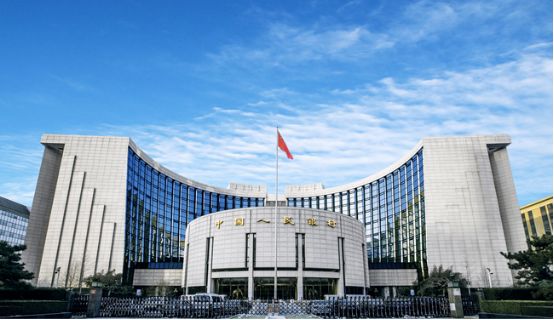
According to the relevant regulations, when the online verification system reports that the resident identity card has lapsed, if the bank can accurately judge or verify that the resident identity card presented by the customer is invalid or report the loss of the certificate, If the non-resident identity document is a virtual false cetificate piece, it shall refuse to handle the relevant business for the customer;
Among them, the bank shall also report the case to the public security organ if the customer obtains account opening or other business by false identity document or fraudulent use of other person`s document.
On the other hand, if the bank can`t judge exactly whether the customer`s identity card is missing or invalid, or if the non-resident identity document is virtual false cetificate, the bank will distinguish the situation.
If the individual is acting on behalf of others, the bank will take further identification verification measures, including the production of household registration books, passports, motor vehicle driver`s license and other documents.
4. Network verification of identity card is of great significance
In recent years, each year, the central bank and the Ministry of Public Security will make corresponding policy adjustments to the problems that will arise with respect to identity cards.
First, it is beneficial to further strengthen the foundation of real-name system of bank accounts, and provide convenient and effective means for banks to verify the validity of resident identity cards and the authenticity of non-resident identity documents.
Second, it is beneficial to prevent units and individuals from opening accounts under false names, reduce economic disputes and losses caused by false names and anonymous account opening, and safeguard the safety of public funds.
Thirdly, it is helpful to restrain the illegal and criminal activities such as telecommunication network fraud, money laundering, tax evasion and so on, and to maintain the normal economic and financial order.
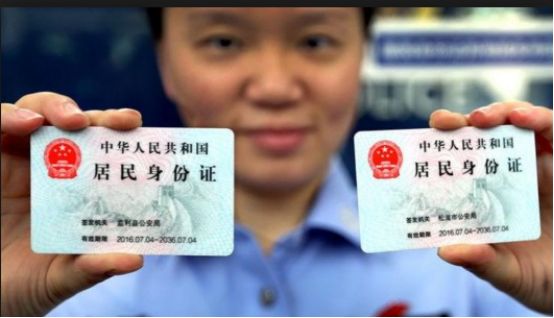
For overseas Chinese, the online verification of domestic identity cards has also promoted the transparency of overseas Chinese property.
5. China and Australia will exchange personal asset information to achieve transparency of property
Since global networking, as an OECD member of the International Organisation for Economic Co-operation and Development (OECD), the tax authorities of participating countries will, in accordance with the international agreement of the Common Reporting Standard, hand over to China the assets and personal information of non-tax residents who invest in these countries!
In other words, the Chinese will open an account in Australia, buy a house, buy a car, will be announced to China`s government, all overseas property will be transparent.
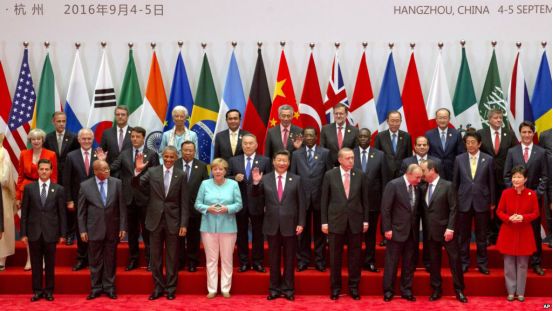
This policy, as early as 2016 in Hangzhou G20 Economic Cooperation Forum was affirmed.
It is understood that the agreement will be implemented in 101 countries and regions starting in 2017. First, China and Canada will start gathering information next year, and the exchange process will begin in 2018.
For local tycoons who invest abroad but do not want to pay taxes, or always care about tax evasion, this year will be the first year of the "naked run" of real wealth.
China, Canada, New Zealand, India, Israel, Iceland and other countries have signed the agreement.
Australia will also connect with China in 2018 to exchange information. If you are a Chinese student, or a Chinese living in Australia as a tourist or an accompanying student, you will open an account with Australian banks and insurance companies. Then all their information will be submitted by financial institutions to the Australian Inland Revenue Authority and then transferred directly to China`s government.
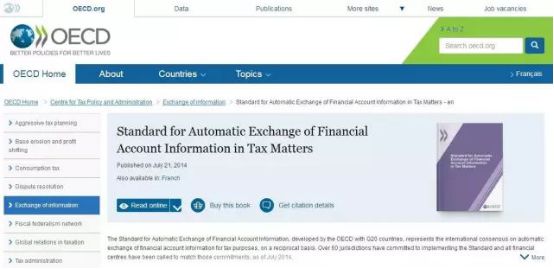
Any basic information about non-Australian residents who open an account in Australia, including their name, ID number, address, birthday, account number, account balance and significant annual transactions, will be disclosed in minutes.
At that point, local tycoons who thought they could avoid taxes in Australia had to give three explanations to China`s government: tax interpretation, source explanation, and foreign exchange control explanation!
According to figures from the Bank for International Settlements (BIS), Chinese banks shed a total of $109 billion in the first quarter of 2015, after which China began collecting asset outflows.
A few years ago, the people`s Bank of China ordered banks to review foreign exchange transactions to prevent illegal cross-border arbitrage.

Three categories of people will be focused on monitoring:
- Parents of foreign students. Many parents who go abroad to study with their children buy properties when they come to Australia, and their Australian accounts are usually non-tax resident accounts.
- Chinese citizens who do business in Australia but do not file taxes with China. Starting last year, China`s state and government tax authorities will begin taxing citizens who emigrate but still hold Chinese citizenship. The tax is based on the sum of domestic and foreign revenues, not just within China.
- A person or family holding assets in an area or country outside Australia and China. These assets may be held on behalf of a Chinese, an offshore company held as an onshore person. Because the countries that have acceded to the agreement almost include the major offshore territories and countries of the world, no one will be able to stand alone in the context of transparency of global wealth.

